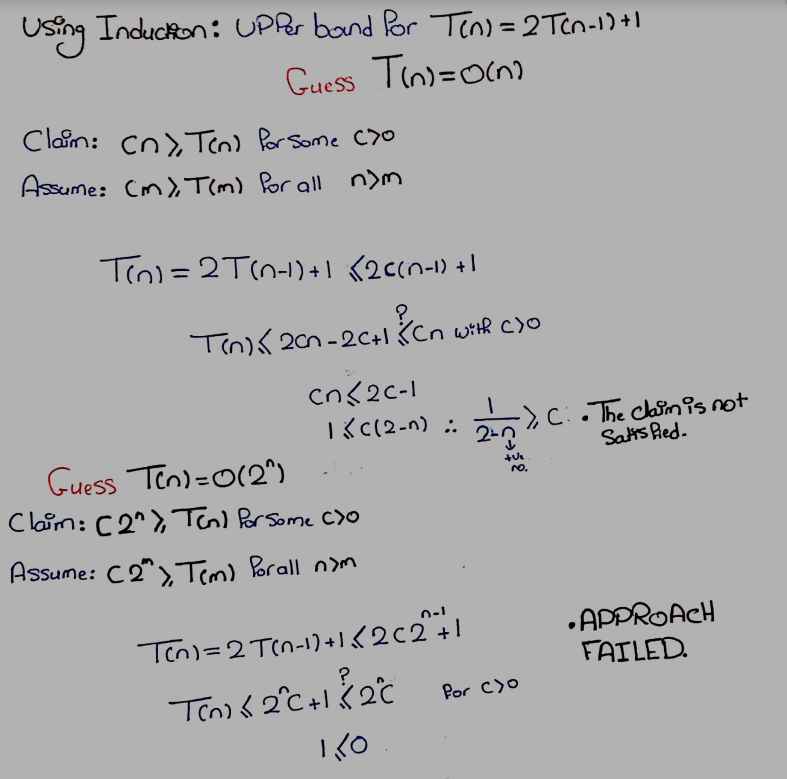More interesting than solving the recurrence is to show where exactly your complete induction proof went wrong.
To show a statement S(n) by complete induction you prove manually that S(n) is true for all $n ≤ n_0$ for some $n_0$, and then you show that for $n > n_0$, if S(n') is true for all n' < n, then S(n) is also true. That's a quite general form of complete induction; the simplest form is to show that S(0) is true, and if S(n-1) is true then S(n) is also true.
You picked the statement S(n): T(n) ≤ $c \cdot 2^n$. That's true for n = 0 as long as T(0) ≤ c. Unfortunately, S(n-1) doesn't imply S(n): S(n-1) means $T(n-1) ≤ c \cdot 2^n$, so $T(n) = 2T(n-1) + 1 ≤ 2c \cdot 2^{n-1} + 1 = c \cdot 2^n + 1$. And that doesn't prove S(n).
This doesn't mean the statement S(n) is wrong; it just means you failed to prove it. But with complete induction, if you make the induction statement stronger, then you also make the pieces that you can use in your induction proof stronger.
So now we claim S(n): $T(n) ≤ c \cdot 2^n - 1$. That's a stronger statement. It is true for n = 0 if $T(0) ≤ c - 1$ or c ≥ T(0) + 1. And now S(n-1) means $T(n-1) ≤ c \cdot 2^n - 1$, and therefore $T(n) = 2T(n-1) + 1 ≤ 2(c \cdot 2^{n-1} - 1) + 1 = c \cdot 2^n - 1$, which is exactly the statement S(n).

